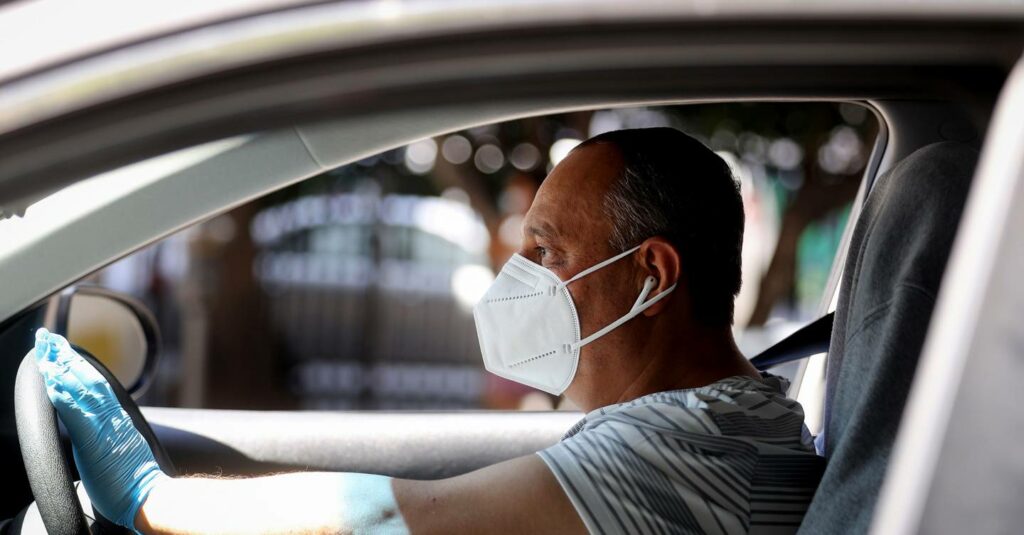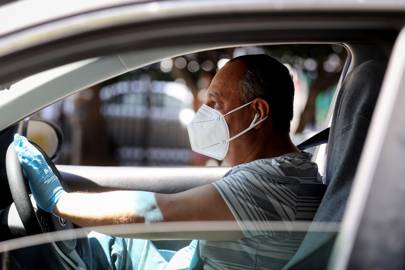El engaño de la Corte Suprema de Uber podría ser uno de sus mayores errores hasta ahora
hace 4 años


Después de cinco años de batallas legales y un intenso cabildeo para detenerlo, Uber ha enviado un mensaje a sus 70.000 conductores en el Reino Unido, diciendo que todos están siendo reclasificados como trabajadores. Pero miles de conductores todavía planean llevar a la empresa a los tribunales.
A primera vista, parecía que Uber finalmente había aceptado la derrota. Los conductores ahora pueden reclamar salario mínimo, pago de vacaciones y mayores contribuciones a la pensión. La plataforma de transporte privado dijo que reconocería a todos los conductores como trabajadores, según lo dictaminado por la sentencia de la Corte Suprema el mes pasado. Pero no es tan simple.
En un mensaje a los conductores, Uber prometió que garantizará que se les pague "al menos" el salario mínimo de 8,72 libras esterlinas por hora desde el momento en que acepten el transporte hasta la entrega, pagará el 12,07 por ciento del salario de los conductores cada dos semanas (después de los costos de funcionamiento del vehículo) para su tiempo de vacaciones, y establecer un plan de pensiones para todos los "conductores elegibles". Las ganancias promedio de los conductores de Uber son £ 17 la hora en Londres y £ 14 la hora para el resto del Reino Unido, pero la compañía ahora completará su salario para cumplir con el salario mínimo si no ganan esa cantidad.
Todo esto puede parecer una victoria definitiva para miles de conductores que se sumaron a la acción grupal el mes pasado, para demandar a la empresa y exigirles que los reconozca como trabajadores. Pero no lo es. Los sindicatos afirman que Uber ha tergiversado el fallo de la Corte Suprema, que decía que los trabajadores tienen derecho al salario mínimo tan pronto como inician sesión en la aplicación, no solo cuando conducen personas. Argumentan que esta dilución significará que los conductores podrían perder entre el 40 y el 50 por ciento de su salario autorizado mientras están conectados a la aplicación, esperando que se les asigne un viaje de pasajero.
"Vuelve a una cierta cantidad de arrogancia, que [Uber] sienten que pueden tomar una decisión basada en su interpretación y esperan poder salirse con la suya, y nadie lo desafiará ”, dice Steve Garelick, organizador regional de GMB Union. "Y es triste y decepcionante, realmente que haya ido de esa manera".
La preocupación no es solo que este acuerdo pueda engañar a los conductores. También se trata de lo que podría hacer Uber a continuación. En su mensaje a los conductores, Uber dijo que planea "compartir detalles durante los próximos días sobre cómo expresar interés en un pago de compensación por viajes históricos si es elegible", abriendo la puerta para que los trabajadores eludan la necesidad de una acción grupal. Pero si sus cálculos se basan en sus propios criterios para el salario mínimo, y no en los de la Corte Suprema, los conductores podrían obtener un cheque de compensación en el sótano en lugar de la cantidad a la que tienen derecho.
Los abogados que representan a 4,000 de los conductores actuales y anteriores que demandaron a Uber dijeron que su acción grupal continuará a pesar del anuncio. Nigel Mackay, socio del bufete de abogados Leigh Day, dice que los reclamos continuarán a menos que Uber garantice a los conductores la compensación completa a la que tienen derecho. “Hasta ayer, [Uber] estaban negando que [the judgment had any impact at all, is difficult to accept what they say or trust that they’re going to fully comply with driver rights,” he says.
The Independent Workers of Great Britain union has urged HMRC to launch an investigation into back-pay and force Uber to guarantee minimum wage as soon as drivers log on to the app, and obey the Supreme Court’s ruling. So far, no investigation has been launched. The Department for Business, Energy and Industrial Strategy, which is handling the government’s response to the Uber employment case, said it is awaiting the full details of Uber’s plan, but sees driver’s reclassification as workers as a “positive step”.
Writing in the Evening Standard, Uber CEO Dara Khosrowshahi painted the decision to reclassify its drivers as something that the company arrived at independently, helped along by the Supreme Court decision, rather than something it fought against for years and only implemented when there was no other viable option.
“I will be the first to admit that we’ve struggled to identify solutions that work for Uber and for those who earn on our platform,” he says. “I know many observers won’t pat us on the back for taking this step, which comes after a five-year legal battle. They have a point, though I hope the path that we chose shows our willingness to change.”
But no one acting on behalf of drivers believes that Uber has changed. “Every time Uber says it’s turning over a new leaf. They have more leaves turned over at this stage now than an autumn in Hampshire.” says James Farrar, one of the lead claimants of the original case against Uber. “It’s the same old Uber, and it is frustrating to have to go back to court again and again and again, but we have no choice. I’m not letting go until we have everything that the Supreme Court told us we were entitled to. And that’s not much, by the way.”
The suggestion that the Supreme Court judgement gave Uber a new method of complying with the law really doesn’t stand up to any scrutiny, says Mackay, because the Supreme Court judgement simply confirmed other judgments that have been handed down over the years. “They simply ran out of avenues of appeal,” he says. In his op-ed Khosrowshahi says that Uber wants to provide drivers with rights while maintaining flexibility, but Mackay says that was never an either-or choice. “We’ve been saying that from day one. There was never any reason for them to end flexibility,” he argues. “This is a complete u-turn from Uber because all along they said, we’re fighting this because we want to carry on with flexibility.”
Uber hasn’t changed at all, says Garelick. “You’ve got to engage with people to show willingness, if they were talking to us and sitting around the table and saying, ‘What we’ve offered isn’t enough, you’re right’, there would be that,” he says. “We applaud the fact that they’ve kind of done the right thing – they haven’t done the full right thing.”
This isn’t just about Uber, it’s about the entire gig economy, Garelick argues. But in the short term, Uber is still very much a target. “It’s laudable that they’ve started down the road,” Garelick says. “They’ve just got to be nudged over the edge of the precipice. But I suspect that if there’s enough pressure they will.”
Uber is offering a pension facility, but for Uber to pay in a three per cent quota, drivers have to pay five per cent from their own pockets, which Garelick says many drivers can’t spare. “It’s so nice to be offering it but a lot of drivers won’t take it up,” he says.
Another unanswered question is one of simple economics. Uber has not sidestepped costly legal action, but has encumbered itself with guaranteeing minimum wage to 70,000 people. There was no mention of how it was going to pay for the extra cost of making drivers workers, nor the ongoing group action to claim compensation for backdated pay.
Uber has made clear that it will keep fares competitive. It has also told drivers that there are no changes to service fees or the way it calculates fares. However, the company pushed up prices in California last year to help cover new benefits for drivers imposed by gig economy laws, which ranged from $0.30 to $2 depending on the service and location.
When the Supreme Court decision was handed down, the hope was that other companies would voluntarily recognise drivers and couriers as workers. When Uber refused to capitulate and accept that drivers are workers, some companies may have felt safe, Mackay says. All that is over. “It [Uber] parecía tener infinitas vías para argumentar que no tenía por qué hacer esto. Uber es probablemente el nombre más importante en la economía de los trabajos por encargo. Eso probablemente habría tenido un efecto persuasivo en otras empresas. Ahora pueden sentirse un poco más expuestos. "
Natasha Bernal es la editora comercial de Mundo Informático. Ella tuitea desde @TashaBernal
Más historias geniales de Mundo Informático
🏥 El terror y el trauma de sobrevivir a cuidados intensivos con Covid-19
🍩 Cambiamos la oficina por Slack y Teams. A medida que se avecina el trabajo híbrido, comienza la carrera para arreglarlos
💬 Cómo detectar textos falsos de vacunas Covid-19 NHS
🔊 Escuche The Mundo Informático Podcast, la semana de ciencia, tecnología y cultura, que se entrega todos los viernes
👉 Siga Mundo Informático en Gorjeo, Instagram, Facebook y LinkedIn
Si quieres conocer otros artículos parecidos a El engaño de la Corte Suprema de Uber podría ser uno de sus mayores errores hasta ahora puedes visitar la categoría Otros.

Otras noticias que te pueden interesar